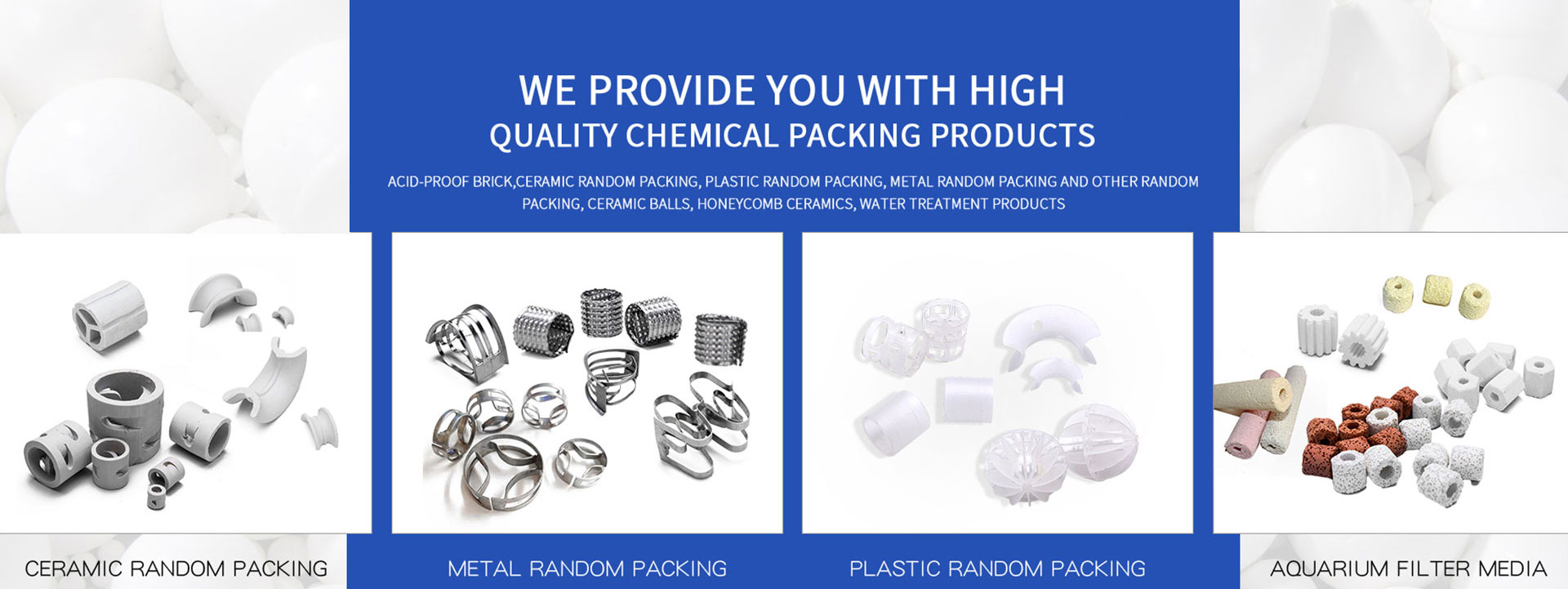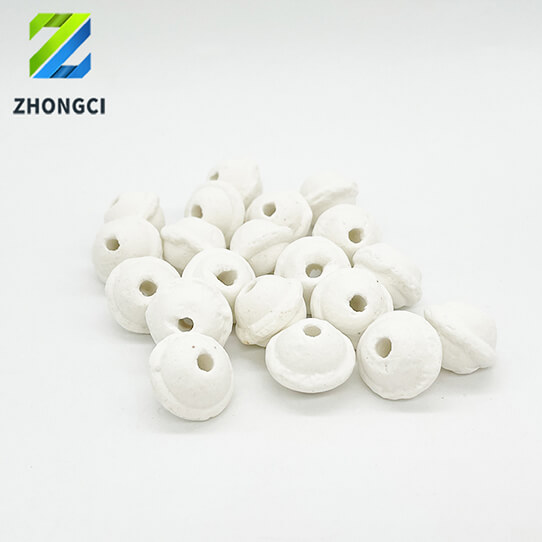


Perforated heat storage ceramic ball as support media in petrochemical industry
Quick Details
Perforated Heat Storage Ceramic Balls are specialized ceramic media used as support media and heat storage materials in the petrochemical industry. These balls are made from high-temperature-resistant ceramic materials such as alumina (Al₂O₃), mullite (3Al₂O₃·2SiO₂), or silicon carbide (SiC), and feature perforations (holes) to enhance heat transfer, gas flow, and surface area. They are widely used in applications such as catalytic reactors, reformers, heat exchangers, and thermal storage systems.
High Thermal Stability:
Can withstand extreme temperatures (up to 1600°C or higher), making them suitable for high-temperature petrochemical processes.
Excellent Heat Storage Capacity:
The ceramic material and perforated design allow for efficient heat storage and transfer.
Chemical Resistance:
Resistant to corrosion and chemical attack from acids, alkalis, and hydrocarbons.
High Mechanical Strength:
Durable and resistant to breakage, even under high-pressure conditions.
Enhanced Surface Area:
The perforations increase the surface area, improving heat transfer and catalytic efficiency.
Low Pressure Drop:
The open structure minimizes resistance to gas flow, reducing energy consumption.
Catalytic Reactors:
Used as support media for catalysts in processes such as hydrotreating, hydrocracking, and reforming.
Reformers:
Provide heat storage and support for catalysts in steam reforming of hydrocarbons to produce hydrogen.
Heat Exchangers:
Used in regenerative heat exchangers to store and transfer heat efficiently.
Thermal Storage Systems:
Store heat in processes requiring intermittent heating and cooling cycles.
Flue Gas Treatment:
Used in scrubbers and reactors to treat flue gases and remove pollutants.
FCC Units (Fluid Catalytic Cracking):
Support catalysts in cracking heavy hydrocarbons into lighter fractions.
Efficient Heat Transfer:
The perforated design enhances heat transfer and storage, improving process efficiency.
High Durability:
Resists high temperatures, pressure, and chemical corrosion, ensuring long service life.
Low Maintenance:
Requires minimal maintenance due to its robust design.
Versatility:
Suitable for a wide range of petrochemical processes and operating conditions.
Cost-Effective:
Provides an economical solution for heat storage and catalyst support.
Heat Storage:
The ceramic balls absorb and store heat during high-temperature phases of the process.
Heat Release:
The stored heat is released during cooling phases, maintaining consistent process temperatures.
Catalyst Support:
In catalytic reactors, the balls provide a stable surface for catalysts, enhancing reaction efficiency.
Gas Flow Optimization:
The perforations allow for uniform gas flow and distribution, improving process performance.
| Performance | Indicators |
| Water absorption (%) | ≤5 |
| Packing density (kg/m3) | 1200—1550 |
| Proportion (g/cm3) | 2,3—2,45 |
| Scorching weightlessness (w/w,%) | 0,25-0,45 |
| Resistance temperature (C) | 1300-1600 |
| Mo's hardness (level) | ≥7 |
| the acid resistance (%) | ≥98 |
| the acid resistance (%) | ≥82 |
| Blastic resistance temperature (C) | 800-20 not cracked three |
| Softening degrees (C) | 1970 |
<< Previous page
Next page >>